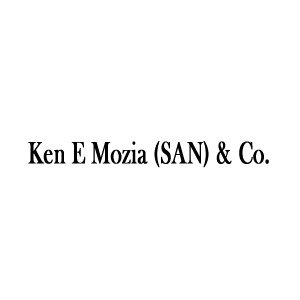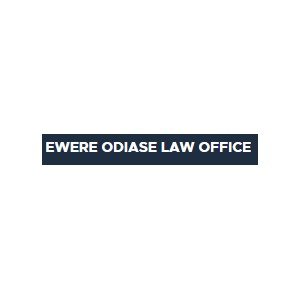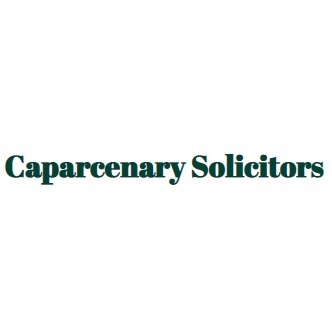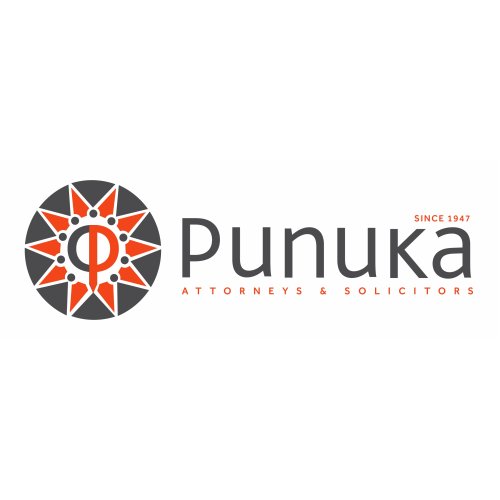Best FDA Law Lawyers in Asaba
Share your needs with us, get contacted by law firms.
Free. Takes 2 min.
List of the best lawyers in Asaba, Nigeria
About FDA Law in Asaba, Nigeria
FDA Law in Nigeria typically refers to laws and regulations governing food, drugs, cosmetics, medical devices, and related products, with the National Agency for Food and Drug Administration and Control (NAFDAC) as the chief regulator at the federal level. In Asaba, the capital of Delta State, these regulations are enforced in accordance with Nigerian federal law and may also be complemented by relevant state health and safety regulations. The purpose of FDA Law in Asaba is to protect public health by ensuring that all consumable products are safe, properly labeled, and of acceptable quality. Businesses and individuals interacting with food and drug products must comply with these laws, which cover everything from product registration to importation, sale, advertisement, and recalls.
Why You May Need a Lawyer
Legal guidance is crucial for understanding and complying with FDA Law in Asaba. Some common situations where you may need a lawyer include:
- Registering a new product with NAFDAC or state agencies
- Receiving a warning, penalty, or closure order from regulatory authorities
- Selling or importing products not yet approved in Nigeria
- Challenging the seizure of goods believed to be noncompliant
- Defending against allegations of false labeling or expired products
- Obtaining licenses or permits to operate a pharmaceuticals, cosmetics, or food business
- Responding to product recalls or complaints
- Understanding new legislative updates affecting your business or products
- Disputes over intellectual property in branded products or trade secrets
A specialized lawyer can help you navigate the process, represent you before regulatory bodies, and advise on keeping your business or product compliant with all applicable laws.
Local Laws Overview
NAFDAC, established under Decree No. 15 of 1993 (now the NAFDAC Act Cap N1 LFN 2004), is the primary regulatory body for FDA Law in Nigeria, including Asaba. All food, drugs, medical devices, and related consumables intended for sale must be registered and authorized by NAFDAC. These laws cover:
- Product registration and licensing requirements
- Labeling, packaging, and advertising standards
- Permitted ingredients and food safety protocols
- Import, export, and local distribution rules
- Inspection and sampling of goods
- Sanctions for non-compliance, such as product seizures, fines, or prosecution
Delta State Ministry of Health shares enforcement duties locally, particularly for restaurants, pharmacies, and retail outlets. It is essential to check for both federal and state requirements when operating within Asaba.
Frequently Asked Questions
What is the role of NAFDAC in Asaba?
NAFDAC is responsible for regulating and controlling the manufacture, importation, distribution, advertising, and use of food, drugs, cosmetics, medical devices, and chemicals. In Asaba, it works with state and local health authorities to enforce these laws.
Do I need to register my food or drug product before selling in Asaba?
Yes, all food, drug, and related products must be registered and approved by NAFDAC before being placed on the market in Asaba or anywhere in Nigeria.
What happens if my product is found to be noncompliant?
Noncompliant products may be seized, and you may face fines, business closure, or legal prosecution. Authorities may also recall your product from the market.
Can I appeal a penalty or product seizure by regulators?
Yes, you can challenge regulatory actions through administrative appeal processes or pursue your case in court with the help of a lawyer.
How can I confirm that my product labels and advertisements are compliant?
Consult with a lawyer or regulatory specialist to review your packaging and advertising materials to ensure they meet NAFDAC and state requirements.
Are there local laws in Asaba that differ from national FDA Law?
While federal regulations set the baseline, the Delta State Ministry of Health may have additional operational guidelines and standards for businesses in Asaba.
Is it possible to import food or drugs into Asaba without NAFDAC approval?
No, all imported food, drugs, and related items must be inspected and approved by NAFDAC before distribution or sale in Nigeria.
What are the penalties for selling fake or expired drugs in Asaba?
Penalties include seizure of goods, heavy fines, imprisonment, business closure, and reputational damage. Legal defence should be sought immediately.
How do I obtain a NAFDAC registration number?
You must apply to NAFDAC, providing necessary documentation, samples, and payment of fees. A lawyer can help with preparation and submission to meet all requirements.
Who enforces FDA Law in Asaba at the local level?
Regulation is enforced by NAFDAC and supported locally by the Delta State Ministry of Health and public health agencies, as well as the police in criminal cases.
Additional Resources
If you need further information or support, consider the following resources in Asaba and Nigeria:
- National Agency for Food and Drug Administration and Control (NAFDAC)
- Delta State Ministry of Health
- Nigerian Bar Association (Delta State Branch) - for referrals to qualified FDA Law lawyers
- Standards Organisation of Nigeria (SON) - for standards compliance
- Consumer Protection Council
You can also attend local business seminars or workshops focused on food and drug regulation, often organized by state health authorities or industry associations.
Next Steps
If you require legal assistance in FDA Law in Asaba, start by identifying the specific nature of your concern, such as product registration, regulatory enforcement action, or import compliance. Gather all relevant documents and records. Seek out a lawyer or firm with experience in NAFDAC and health regulations, ideally one knowledgeable about local practices in Asaba. Schedule a consultation to discuss your options and develop a plan to achieve compliance or resolve any legal challenges. Staying proactive and informed is the best way to avoid costly penalties and protect your business or interests.
Lawzana helps you find the best lawyers and law firms in Asaba through a curated and pre-screened list of qualified legal professionals. Our platform offers rankings and detailed profiles of attorneys and law firms, allowing you to compare based on practice areas, including FDA Law, experience, and client feedback.
Each profile includes a description of the firm's areas of practice, client reviews, team members and partners, year of establishment, spoken languages, office locations, contact information, social media presence, and any published articles or resources. Most firms on our platform speak English and are experienced in both local and international legal matters.
Get a quote from top-rated law firms in Asaba, Nigeria — quickly, securely, and without unnecessary hassle.
Disclaimer:
The information provided on this page is for general informational purposes only and does not constitute legal advice. While we strive to ensure the accuracy and relevance of the content, legal information may change over time, and interpretations of the law can vary. You should always consult with a qualified legal professional for advice specific to your situation.
We disclaim all liability for actions taken or not taken based on the content of this page. If you believe any information is incorrect or outdated, please contact us, and we will review and update it where appropriate.













